NEWSLETTER
Table of Contents:
Estonian Language Houses provide new opportunities for practising Estonian
Sign-up for free Estonian language courses is possible again in March
Estonian Language Fair "KU-КУ" comes again!
Everyone is different, but equally human
The Integration Conference is available online
Open calls for tenders and calls for proposals
Estonian Language Houses provide new opportunities for practising Estonian
The Estonian Language Houses of the Integration Foundation have set a tight program of events for January-July 2020 for practising Estonian language, providing several opportunities to speak the language every week. Aljona Kordontšuk, Head of the Estonian Language House in Tallinn, and Margarita Källo, Head of the Estonian Language House in Narva, will talk more about these possibilities.
What is new in the Estonian Language Houses for the visitors in the first half of 2020?
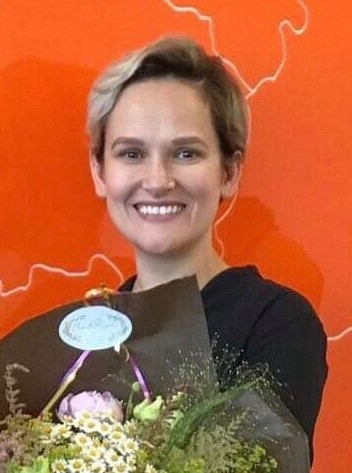 Aljona Kordontšuk: “As a new activity, in cooperation with the Estonian Folk Culture Centre, we have launched a course of cultural traditions in Tallinn and Narva, introducing Estonian customs, traditional holidays, rituals, folk songs and dances, and much more. The course includes exciting lectures, seminars, discussions and hands-on activities. Active participants can enjoy a trip to Setomaa at the end of the course. The course has proven to be very popular and there are only few free seats left for the lectures.
Aljona Kordontšuk: “As a new activity, in cooperation with the Estonian Folk Culture Centre, we have launched a course of cultural traditions in Tallinn and Narva, introducing Estonian customs, traditional holidays, rituals, folk songs and dances, and much more. The course includes exciting lectures, seminars, discussions and hands-on activities. Active participants can enjoy a trip to Setomaa at the end of the course. The course has proven to be very popular and there are only few free seats left for the lectures.
From mid-January, Maardu has been hosting a social club for local teachers, where they practise Estonian language once a week. In February, in the Estonian Language House of Tallinn, we will launch a social club for parents whose child starts studying or is studying in an Estonian kindergarten, school or language immersion program. We will also be diversifying our workshop themes: in addition to the popular cooking workshop, we are now launching a ceramic workshop where we practise Estonian language through exciting handiwork. We have many ideas, and there will certainly be more new and exciting ways to practise the language!”
Margarita Källo: “In the Estonian Language House of Narva, we are constantly looking for new and exciting topics and activities that would help the residents of Ida-Virumaa to learn and practise Estonian. We are diversifying the possibilities of practising Estonian in Kohtla-Järve, making plans for Sillamäe and Jõhvi, and expanding our cooperation with partner organisations.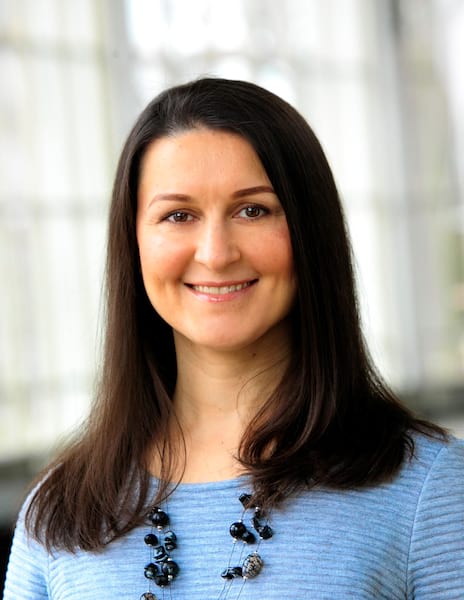
This year, we have added more family-oriented events to our program. For example, we are organising a study trip to Rakvere, where we invite participants with their families. We are welcoming both children and their parents for an adventure game and children's film night. There will be a barbecue workshop for men, designed specifically for them.
The course of cultural traditions, which has just begun and is already very popular, provides opportunities to meet interesting guests, gain new knowledge of Estonian cultural traditions, and sing and dance together. In May, we look forward to everyone joining us for the Environment Day, as we will take part in the “Let's Do It” campaign and watch a film about nature. We also plan to discuss fashion this season. The program will definitely be very diverse and exciting, so, welcome! ”
Whom to and which language practising methods do you recommend in the Estonian Language Houses?
Margarita Källo: “We are pleased to welcome all visitors to the Narva Estonian Language House. While our activities are focused on adult language learning, we definitely welcome all family members to family events, regardless of age.
The level of proficiency in the Estonian language is not decisive for participating in our activities. Everyone can decide which form of learning or language practising event suits them best, and how actively they want to participate in our activities. I am convinced that the greatest value of the Estonian Language Houses is that we provide language learners with an opportunity to be in a language environment. The most important thing is the courage to experiment, to make mistakes, and learn through it.”
Aljona Kordontšuk: “The events and activities of the Estonian Language Houses are planned in such a way that thanks to our diverse program, everyone can find the most suitable option to practise the language of communication in the language environment. All of our events take place in the evening, which allows people to participate after work.
For those who are just starting to learn Estonian, I recommend the Tallinn Estonian Language House social club for beginners, held once a month. For the advanced, we have a Monday night debate “Media24”, where we read, listen and watch current news. For independent learners, we recommend our Language Watch meetings, which are held twice a month, and where the results and methods of independent learning can be discussed with a teacher. Our film and discussion nights are suitable for absolutely everyone. We have a very wide range of options, the main thing being the activeness of language learners. We look forward to and help everyone!”
Check out the program of language practising events in Tallinn and Narva.
Sign-up for free Estonian language courses is possible again in March
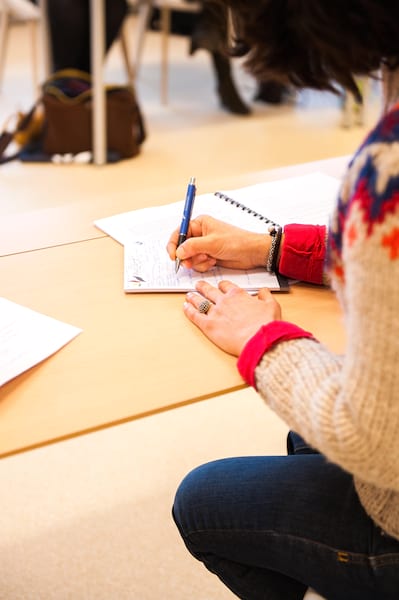 Through the online registration of the Integration Foundation in January, 736 people have started their free Estonian language studies. The next opportunity to sign up for the courses will open in March and August, with the Integration Foundation offering another up to 4,000 free A1-C1 level study places.
Through the online registration of the Integration Foundation in January, 736 people have started their free Estonian language studies. The next opportunity to sign up for the courses will open in March and August, with the Integration Foundation offering another up to 4,000 free A1-C1 level study places.
This year, the Integration Foundation will provide approximately 5,500 people with a chance to learn Estonian through courses. Thanks to additional funding for Estonian language studies from the Ministry of Culture, the Integration Foundation is organising three sign-ups for the courses this year, instead of the usual two. “For those who wanted to sign up in January but did not make it or did not find a suitable course, a new opportunity to start studying will open in the spring. As usual, registration for the courses will also take place in August,” said Jana Tondi, Head of Language Studies, Integration Foundation.
People who do not have the opportunity or desire to complete our online registration form can access Estonian language courses through personalised counselling. In this case, contact the Estonian Language House advisors by sending an e-mail at info@integratsiooniinfo.ee or by calling the free-of-charge hotline 800 9999.
“Our advisors will analyse the needs and experiences of each individual and propose an appropriate language learning option. As a result of the counselling, you will be referred to a suitable training provider or enrolled in the Integration Foundation's Estonian language courses,” Jana Tondi explained.
As a result of the January registration, a total of 46 courses have started in Tallinn, Tartu, Pärnu, Narva, Sillamäe, Jõhvi, Kohtla- Järve and its Ahtme district.
Courses provided by the Integration Foundation are not the only way to improve your proficiency of Estonian for free. For example, Tallinn and Narva Estonian Language Houses offer many exciting and interactive opportunities for people who want to practise Estonian, such as social clubs; discussion, board game and film nights; various thematic workshops; study tours; playful quizzes, and other opportunities to take part throughout the year. Check out the program of language practising events in Tallinn and Narva.
Several other organisations also arrange free courses in Estonian. In total, various institutions provide nearly 10,000 free study places this year.
Estonian Language Fair "KU-КУ" comes again!
This year the Estonian language fair “KU-КУ” will be held on March 14th at 10-15 at TalTech Virumaa College (Järveküla tee 75, Kohtla-Järve) and on March 28th at 10-16 at Tallinn Song Festival Grounds (Narva maantee 95, Tallinn).
The aim of “KU-КУ” is to introduce the possibilities of learning Estonian. Adults with various Estonian language skills and language learning needs are welcome to the fair.
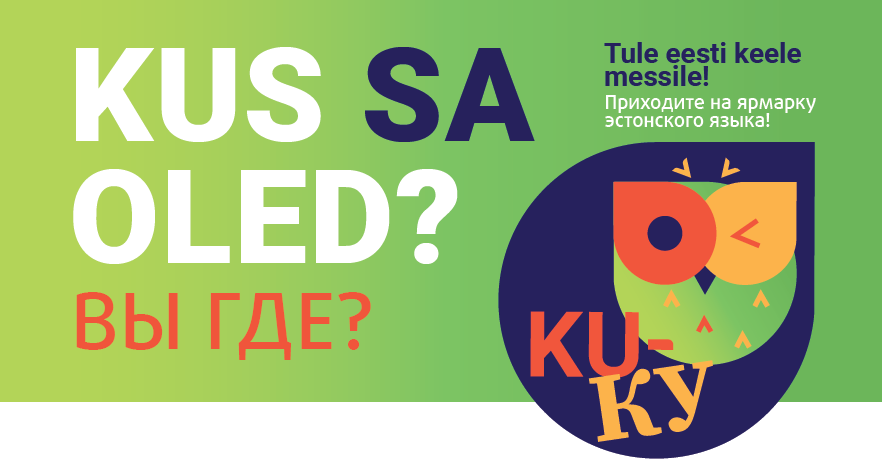
Participants will be able to:
- find a suitable language study form;
- see the latest study materials;
- play language learning games;
- get advice on how to prepare for a language exam;
- get acquainted with the methodology of language immersion;
- participate in language cafés and workshops, presenting differences in language learning methodologies, teaching how to choose a purposeful methodology for your needs, and how to use day-to-day tools and opportunities around you.
There is a lottery every full hour at the fairgrounds, plus a café open throughout the day and fun activities for the kids.
Participation in the language fair is FREE.
Additional info:
Free-of-charge hotline 800 800999
E-mail info@integratsiooniinfo.ee
Everyone is different, but equally human
The Ministry of Social Affairs has launched a campaign entitled ‘Everyone is different, but equally human’ encouraging good will towards all so that everyone feels safe and has the opportunity to be part of and contribute to society.
Deputy Secretary General on Social Policy of the Ministry of Social Affairs Rait Kuuse says a great deal of potential is going untapped in Estonia and that guaranteeing equal opportunities and greater appreciation for diversity would promote both economic and social well-being.
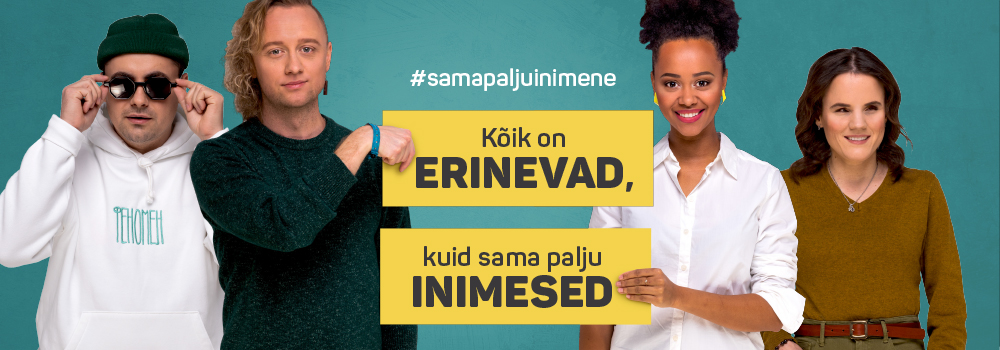
“The world’s becoming more diverse all the time and we’ll only make a success of it if we’re accepting of and care about others,” he said. “One of the aims of the Ministry of Social Affairs is to foster kindness, consideration and equal treatment in society. It’s a widely held view that people are happier in societies that are open and tolerant. Openness and diversity attract talented people and dynamic companies from other parts of the world as well, which can only benefit the economy.”
There is a growing appreciation in Estonia for values related to human rights. For example, the availability of aids and medications for people with disabilities has improved in recent years. However, other aspects of the lives of people with disabilities or health issues remain problematic: equal access to education, social services, a sufficient standard of living, social protection, employment and health care is not ensured. “We’ve been doing our best to address the issues facing people with disabilities for a long time now, and the situation has improved a bit, but there’s still a long way to go,” Kuuse admitted. “We have to learn to think ahead even more and create the kind of environment that will help people maintain their independence even if special needs arise, for instance due to their age.”
Estonia as a whole takes one of the most negative views in Europe of refugees and immigration in general. For example, more than half of the population feels that the state should be placing greater restrictions on those from different cultural backgrounds coming to live in the country. “But we can’t look at immigrants or refugees as one homogenous group and stick labels on them on that basis,” Kuuse remarked. “We have to recognise them as individuals, and focus on the positives that other cultures bring, not to mention how much different people contribute to our economy.” Immigration tends to be viewed as more beneficial by residents of Estonia who have had more personal interaction with foreigners.
Regardless of the fact that attitudes towards sexual minorities have improved in Estonia over the years – for example with the number of those supporting civil partnership laws rising – many people still deem homosexuality unacceptable. “People’s views on sexual minorities have softened over time, thankfully, but we still have to work to overcome stereotypes and promote understanding,” Kuuse said. As in other countries, there is greater solidarity with the LGBTQI+ community in Estonia among women and those with higher education.
“Every single person is of value, and it’s the differences between them that make society smarter, stronger and more successful,” Kuuse said. “We’re all different in terms of what we know and what we’ve experienced in life and the choices we make and how we look, but we’re all equally human. Equal treatment means that those differences are taken into consideration when we plan the way society operates – and that leads to a better-functioning society.”
The ‘Everyone is different, but equally human’ campaign of the Ministry of Social Affairs, which runs from 6 January-16 February, encourages kindness and understanding towards people who are different. It aims to raise awareness of equal treatment and to highlight the contributions made to Estonian society by members of its minorities. Warm-hearted and thought-provoking stories can be viewed online at www.sm.ee/et/sama-palju-inimene.
The Integration Conference is available online
Video recording of the international integration conference "Common Language - Integrating Society through Multilingualism" held last November can be watched here.
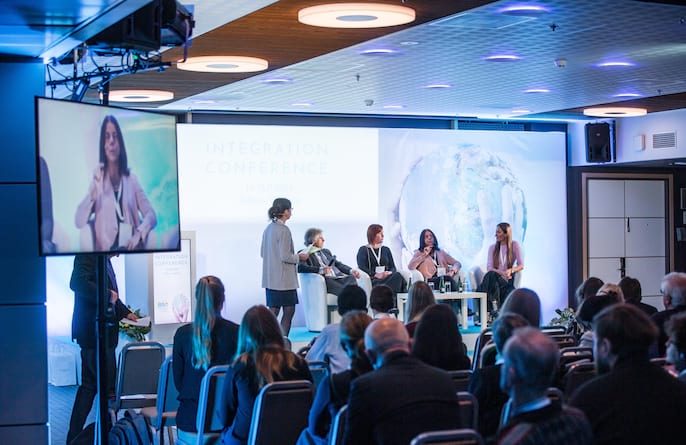
The conference brought together internationally renowned experts from the US, Canada, UK, Latvia, Denmark, Norway, Germany and Estonia on issues of identity, education and the labour market in the context of multilingualism.
Open calls for tenders and calls for proposals
The Integration Foundation has announced the following calls for tenders and proposals:
- Call for tenders: Estonian language courses (in Estonian) for poorly integrated permanent residents, new immigrants and returnees (ref. no. 218036).
- Call for proposals: Support for exile Estonian cultural societies.
- Call for proposals: Operating grants to partner organisations for family learning.
- Call for proposals: Cultural and sporting activities promoting integration.
- Call for proposals: Support for cultural societies of national minorities.
Information on the announced calls is published on the Integration Foundation's website at integratsioon.ee/konkursid.
Our calendar
Information on events that take place by our organisation, participation or support, can be found in the calendar published on our website.
Our news
You can read the latest announcements of the Integration Foundation in the news section of our website and on the Facebook page of the Integration Foundation or the Estonian Language House.
